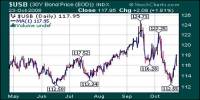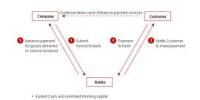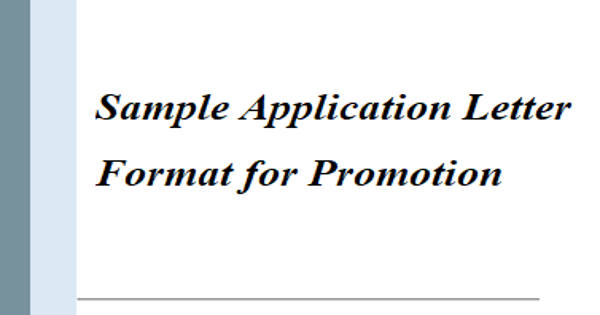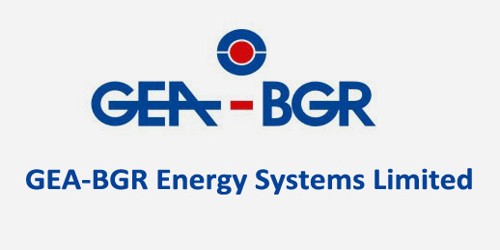A lock-up agreement is a contract between business insiders and an underwriting firm that states that company insiders are not allowed to sell their shares of the company’s stock for a set length of time. It’s a legally enforceable agreement struck between a company’s insiders and underwriters during its initial public offering (IPO) that prevents them from selling any of their shares for a specified length of time. This contract is often enforced as part of an initial public offering (IPO) and lasts for three to twelve months.
Despite the fact that lock-up agreements are not required by federal law, underwriters frequently demand CEOs, venture capitalists (VCs), and other business insiders to sign them in order to avoid excessive selling pressure in the first few months after an IPO. Company insiders are barred from selling their shares during the lock-up period under a lock-up agreement (a specified period of time). Most underwriters have a six-month lock-up period or 180 days.
Following the expiration of a lock-up agreement, stock values frequently fall. Depending on the company’s fundamentals, this might be a good chance for new investors to get in at a reduced price. Underwriters frequently employ lock-up agreements during an initial public offering. This agreement is a legal contract between underwriters and business insiders that specifies that insiders must not sell their shares of a firm’s stock within a certain amount of time.
In the run-up to an IPO, a prospectus is given to the investor community that includes a summary of all lock-up agreements. Because there are normally no federal rules regarding lock-up agreements, the underwriter usually decides on the period. Lock-up periods are usually 180 days long, however, they can be as short as 90 days or as long as a year.
A lock-up agreement is designed to alleviate selling pressure on a company’s shares during the initial few months of trade. Insiders will most likely desire to sell their shares in order to make big gains, resulting in a spike in stock sales in the months after the IPO. Insiders are sometimes “shut out” for a length of time at the same time. In other circumstances, the agreement will have a staggered lock-up structure, with different classes of insiders being locked out for varying amounts of time.
Underwriters will demand insiders to sign a lock-up agreement before a firm can go public. The goal is to keep the company’s stock stable for the first several months after the initial public offering. Despite the fact that federal law does not force firms to use lock-up periods, states’ blue sky laws may demand them. Following the IPO, this technique ensures an orderly market in the company’s shares.
It gives the market ample time to figure out the stock’s true value. It also guarantees that insiders continue to behave in accordance with the firm’s objectives. In certain situations, a lock-up agreement may allow corporate insiders to sell a portion of their holdings in the firm’s stock after the IPO, but most lock-up agreements prohibit insiders from selling the stock. The terms of a firm’s lock-up agreements are always made public in the prospectus documents for that company.
The corporate purchaser may be required to agree to a lock-up provision when selling a controlling share. For the duration of the negotiated lock-up term, it prohibits the selling of the assets or shares. Employee stock options add to the pressure to sell because the exercise price of these options is expected to be lower than the price at which the shares will trade immediately after the IPO.
Another advantage of lock-up agreements for potential investors is that they shield them from purchasing shares in an unstable firm. Companies facing aggressive takeovers may adopt a similar path. Stakeholders who are limited or “locked” are only able to sell their equities when the lock-up period expires. This helps to prevent certain insiders from acting opportunistically and selling their shares at a cheaper price.
Similarly, stock options may have been granted to firm leaders and some workers as part of their employment agreements. The purpose of a lock-up agreement is to safeguard investors. The lock-up agreement aims to prevent a situation in which a group of insiders makes an overpriced business public and then dumps it on investors, profiting handsomely. All lock-up agreements have expiration dates that can affect stock prices in either a favorable or negative way. The influence of lock-up agreement expiry on stock prices is frequently monitored by investors.
Individuals planning to invest in the firm should find out when the lock-up period will end. Because insiders selling some of their stock may put downward pressure on the company’s stock, this is the case. Lock-up agreements are intended to safeguard investors from a regulatory standpoint. Additional terms in the lock-up agreement may limit the amount of shares that can be sold during a set time period after the lock-up agreement expires.
While the expiry of lock-up agreements appears to be a chance for investors to purchase a company’s stock at a lower price, it might also be risky. Even if a lock-up agreement is in existence, investors who are not insiders to the firm may still be impacted once the lock-up agreement has expired. Restricted persons are able to sell their stock when the lock-ups expire. When a large number of insiders leave a company, the stock price might plummet dramatically.
Information Sources:
















